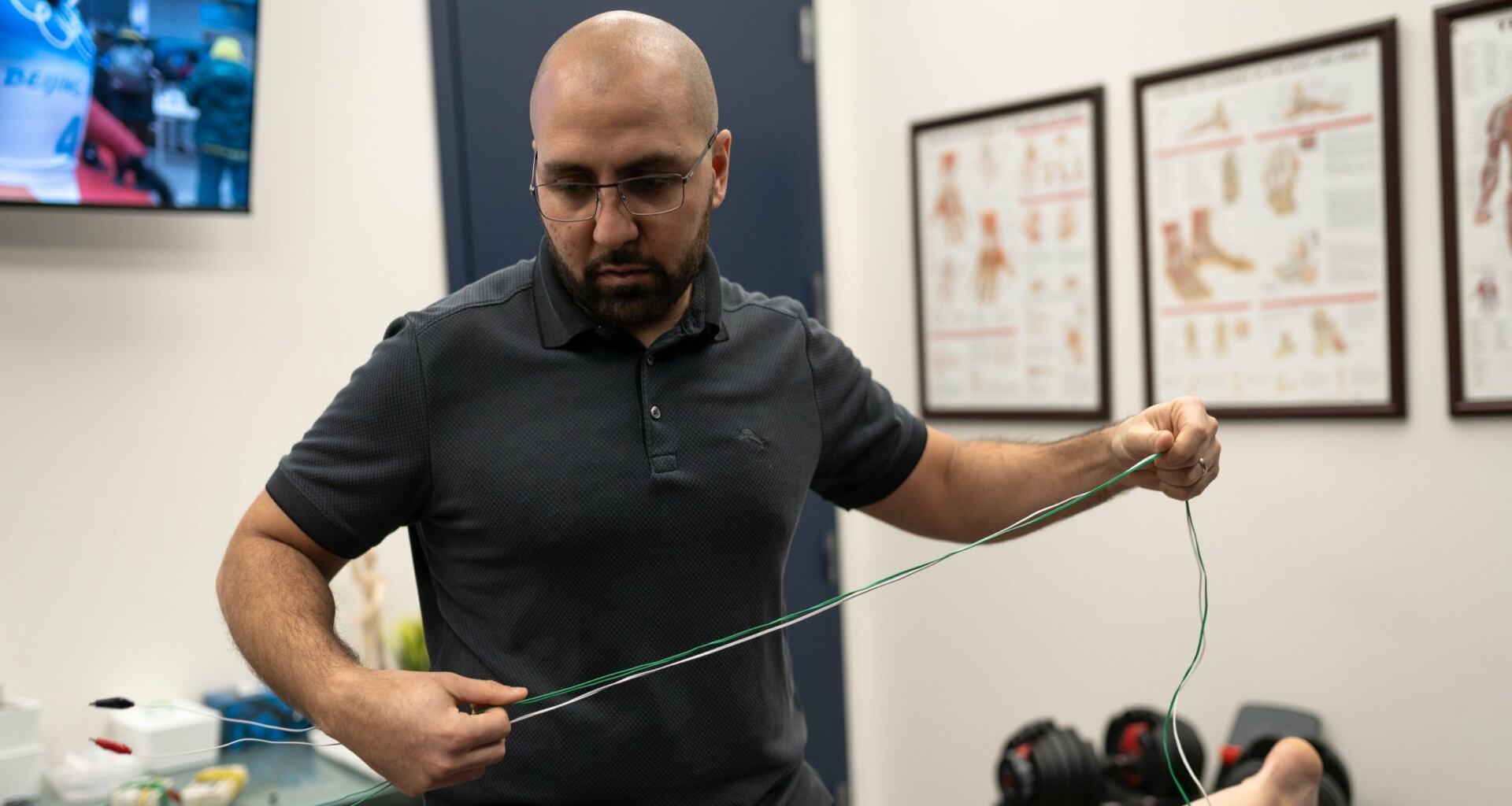A GUIDE TO WHEN YOU SHOULD SEE A PHYSIOTHERAPIST
Are you experiencing pain and discomfort that is affecting your daily life?
Do you have limited mobility or muscle weakness that makes it difficult to perform daily tasks?
Have you recently injured yourself while playing your favourite sport?
If so, you may benefit from seeing a physiotherapist.
Prior to jumping into things let’s make one thing clear. If you’re feeling unsure about whether you should book a physiotherapy appointment, know that it’s not uncommon to feel uncertain about seeking medical help. This is especially true if you’re not sure if your symptoms are severe enough to warrant professional care.
However, it’s important to know that physiotherapy services can be beneficial for a wide range of conditions and can help reduce pain, improve mobility, and enhance physical function. In this blog post, we’ll explore some common signs that indicate you should seek physiotherapy services, so you can make an informed decision about your healthcare needs. That said, if you’ve got an issue that’s affecting your mobility, causing pain or slowing you down in some way, in all likelihood seeking the help of a physio is a great first step. 
WHAT IS PHYSIOTHERAPY?
Physiotherapists are healthcare professionals that focus on preventing, treating, and managing movement disorders. They are trained to assess, diagnose, and treat musculoskeletal conditions and injuries.
The goal of physiotherapy is to reduce pain, improve mobility, and enhance physical function. Physiotherapy can be beneficial for people of all ages and can help with a wide range of conditions, from acute injuries to chronic conditions such as arthritis.
At the Rehab Grid, our Physiotherapists use a variety of treatment techniques which include electro-acupuncture, manual therapy, cupping, dry needling/GUNN IMS, and exercise prescription. 
COMMON CONDITIONS TREATED WITH PHYSIOTHERAPY
Physiotherapy can be used to treat a variety of conditions, including:
-
Musculoskeletal Injuries: This includes conditions such as sprains, strains, fractures, and dislocations, which may result from sports injuries, accidents, or overuse.
-
Back and Neck Pain: Physiotherapy can help address common conditions like lower back pain, sciatica, and neck pain, which may be caused by poor posture, muscle imbalances, or spinal conditions.
-
Joint Pain: Physiotherapy can be effective in managing joint pain caused by conditions such as arthritis, bursitis, and tendinitis, by using techniques like joint mobilization, exercises, and modalities.
-
Sports Injuries: Physiotherapy plays a crucial role in the management and rehabilitation of sports-related injuries, including sprains, strains, ligament tears, and muscle imbalances.
-
Post-Surgical Rehabilitation: Physiotherapy can aid in the recovery process after surgery, such as joint replacements, ligament reconstructions, or spinal surgeries, by promoting healing, reducing pain, and improving function.
-
Neurological Conditions: Physiotherapy can help individuals with neurological conditions like stroke, multiple sclerosis, Parkinson’s disease, and spinal cord injuries, to improve movement, balance, and functional independence.
-
Pre and Post-Natal Care: Physiotherapy can help pregnant women with conditions like pelvic pain, diastasis recti, and postural imbalances, as well as provide post-natal care for recovery from childbirth and restoration of physical function.
-
Age-Related Conditions: Physiotherapy can assist in managing age-related conditions such as osteoporosis, balance and gait issues, and age-related muscle and joint stiffness, by providing exercise programs, fall prevention strategies, and mobility aids.
Please note that this is not an exhaustive list, and physiotherapy services may be beneficial for other conditions as well. It’s always best to consult with a qualified physiotherapist to determine the most appropriate treatment for your specific condition. 
SIGNS YOU SHOULD SEEK PHYSIOTHERAPY SERVICES
There are several signs and symptoms that may indicate you should seek physiotherapy services. These include:
-
Pain: If you’re experiencing pain that’s affecting your daily life, it’s a good idea to seek physiotherapy services. Physiotherapists can help reduce pain and improve overall physical function.
-
Recent Injury: If you’ve recently injured yourself and the symptoms from the injury are severe or continue to linger beyond a few weeks it’s likely that you’re in need of treatment to promote recovery and prevent long-term effects.
-
Stiffness: If you’re experiencing stiffness in your joints or muscles, physiotherapy can be a tool to help improve flexibility and mobility.
-
Limited mobility: If you’re having difficulty performing your usual activities due to limited mobility, physiotherapy can improve strength and balance, which can lead to improved mobility.
-
Muscle weakness: If you’re experiencing muscle weakness, physiotherapy techniques such as exercise and strengthening can improve muscle strength and function.
-
Postural issues: If you’re experiencing posture issues, physiotherapists can assess your posture and provide techniques to improve it. [Img-4]
It’s important to seek physiotherapy services as soon as you start experiencing symptoms, rather than waiting until they become more severe. Early intervention can lead to a faster recovery time and less pain. In our experience, most of us wait too long to get treatment, allowing pain and movement issues to slow us down for far too long before we finally attend to it.
The Rehab Grid offers physiotherapy services in Stouffville at our Main St. clinic. f you or someone who know if looking for physiotherapy services and would like to speak with a member of our team, please use the Contact Us page on our website.


